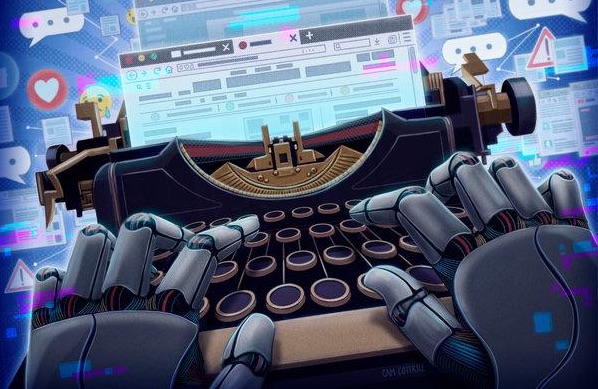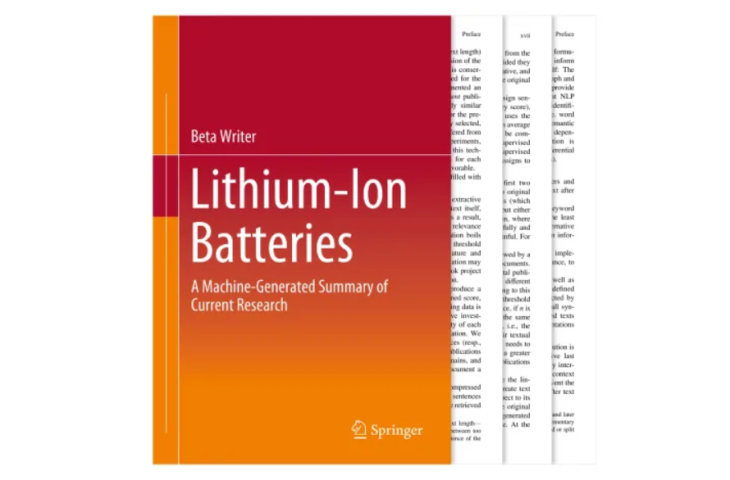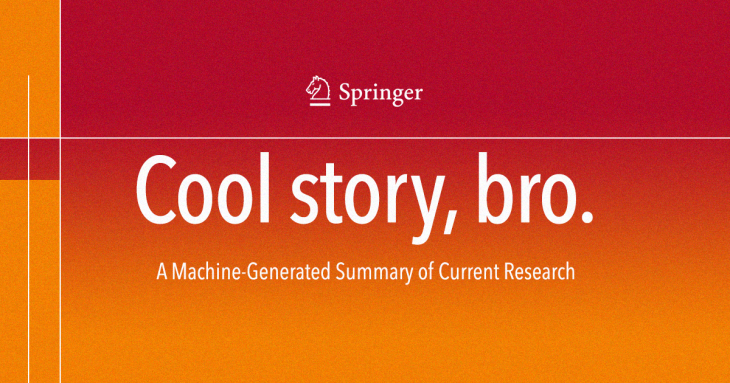Notable Publisher Writes A Textbook Using Machine Learning
Anita - Apr 16, 2019

Lithium-Ion Batteries: A Machine-Generated Summary of Current Research of Springer Nature is the first book that was generated by an algorithm using machine learning.
- This South Korean YouTuber Is The Result Of Deepfake Technology
- Machine Learning Is Better Than Humans In Predicting Stock Market Behavior, Report
- Google's New AI Tool Can Translate Egyptian Hieroglyphs
Springer Nature scientific publisher has recently published the first entirely-machine-learning-algorithm-written book.
The book called Lithium-Ion Batteries: A Machine-Generated Summary of Current Research has 247 research pages about Li-ion batteries as well as summaries written by AI. The content of the book is about how AI is able to help researchers be aware of the newly-released study, and algorithms can review vast literature bodies and choose the most significant details by themselves.

Beta Writer, which is an algorithm created by German Goethe University’s scientists at the Applied Computational Linguistics lab, is the book's author.
Beta Writer had to read an enormous amount of lithium-ion- related articles released in academic journals of Springer and selected the most applicable information in order to write this book, reported by Gizmodo.
Additionally, Springer Nature states that it has been planning to take advantage of Beta Writer to deal with other research fields in the coming time, using the basic tech but aiming at different aspects of science.

Sprinter wrote on the page of the book:

Depends on the requested subject matter, the algorithm will first take advantage of machine learning to research thousands of publications to make sure that only relevant ones are chosen for the book. Then comes the process of parsing, condensing, organizing of those peer-reviewed, pre-approved publications from the database of Springer Nature into logical chapters and sections. In each chapter, the algorithm automatically generates summaries. They can incorporate quoted passages which are linked to original research papers through hyperlinks for anybody who wishes to dive deeper on a certain subject.
At this point, the process is not completely autonomous as human moderators will still need to be in control for the quality of the source material. But after all, we probably do not want an AI to take over the publishing industry anyway.
Featured Stories

Features - Jan 29, 2026
Permanently Deleting Your Instagram Account: A Complete Step-by-Step Tutorial

Features - Jul 01, 2025
What Are The Fastest Passenger Vehicles Ever Created?

Features - Jun 25, 2025
Japan Hydrogen Breakthrough: Scientists Crack the Clean Energy Code with...

ICT News - Jun 25, 2025
AI Intimidation Tactics: CEOs Turn Flawed Technology Into Employee Fear Machine

Review - Jun 25, 2025
Windows 11 Problems: Is Microsoft's "Best" OS Actually Getting Worse?

Features - Jun 22, 2025
Telegram Founder Pavel Durov Plans to Split $14 Billion Fortune Among 106 Children

ICT News - Jun 22, 2025
Neuralink Telepathy Chip Enables Quadriplegic Rob Greiner to Control Games with...

Features - Jun 21, 2025
This Over $100 Bottle Has Nothing But Fresh Air Inside

Features - Jun 18, 2025
Best Mobile VPN Apps for Gaming 2025: Complete Guide

Features - Jun 18, 2025
A Math Formula Tells Us How Long Everything Will Live
Read more

Features- Jan 29, 2026
Permanently Deleting Your Instagram Account: A Complete Step-by-Step Tutorial
By following this guide, you can confidently delete your Instagram account and move forward.

Mobile- Jan 30, 2026
Motorola Unveils Moto G67 and Moto G77: 5200mAh Battery, 6.78-Inch AMOLED Display, Prices, and Specifications
With their combination of modern features and competitive pricing, the Moto G67 and G77 position Motorola strongly in the mid-range segment for 2026.

Mobile- Jan 29, 2026
Guide to Sharing Your Contact Card via the mAadhaar App
The mAadhaar app, developed by the Unique Identification Authority of India (UIDAI), allows users to manage their Aadhaar details digitally.

Mobile- Jan 30, 2026
Red Magic 11 Air Debuts Worldwide: Snapdragon 8 Elite Powerhouse with Advanced ICE Cooling
Nubia's gaming-focused sub-brand, Red Magic, has unveiled its latest smartphone, the Red Magic 11 Air, for global markets.

Mobile- Jan 31, 2026
Generalist vs Specialist: Why the Redmi Note Series Remains Xiaomi's Easiest Recommendation
Redmi Note 15 series – balanced design and modern features.
Comments
Sort by Newest | Popular